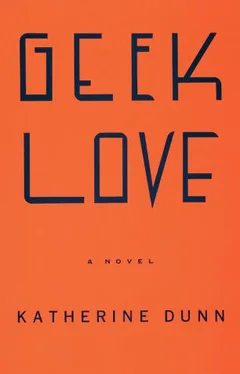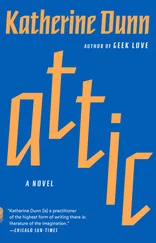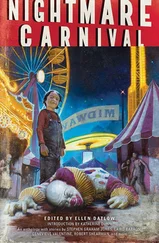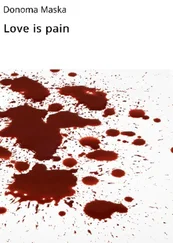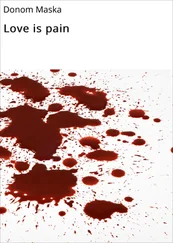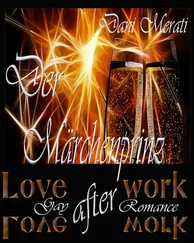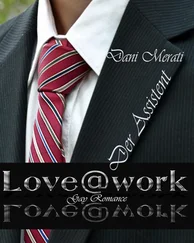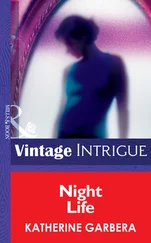.
Gleaner has consistently refused to make any statement or to answer any questions about her self-surgery or her falsified background. Her only comment, relayed through a nurse’s aide, was that the university had no cause for alarm since her tuition and fees had always been paid .
11. Blood, Stumps, and Other Changes
The twins turned fourteen in Burkburnett, Texas, during a Panhandle sandstorm as red as a drinker’s eye. Birthdays were the only holidays the Binewskis noticed and we celebrated them with all the gusto we could muster. But that fourteenth for the twins was in a rough spot. Wichita Falls had denied us a permit and the front man — new to the job, and a reptile anyway — was scared to tell Al. We didn’t find out until the police met us at the lot and escorted our cavalcade out of town, with Al cursing melodically all the way to our next scheduled stop, which was Burkburnett. Burkburnett hadn’t decided whether we could have a permit or not. We put up in the railyard next to the slaughterhouse and slept with the whish and thunk of the oil pumps for night music.
There were oil wells everywhere. The soil had been abandoned to dust and lizards, and the backyard of every wind-blistered bungalow in town had thrown over ideas of shade or geraniums in favor of the whiskey promise in the mutter of those green grasshopper pumps. Every pump was set in concrete and snugged in by a barb-topped chain-link fence eight feet high. There were pumps in the parking lot of the twenty-four-hour liquor store. There were three pumps on choice plots surrounded by the artificial turf that covered the Terra Celestial Memorial Gardens boneyard. A dozen ravenous steel insects sucked at the shit-caked loam in the mile-square meatfield of empty pens where the beeves, when there were beeves, milled waiting for the knife. The white board fences of the paddocks were guarding only oil pumps that week. The packing plant was closed down.
Past our corner of the meat yard the town began, or ended, in a blasted heap of storefronts leaning on each other to face a million miles of Texas rushing straight at them over the mindless, moundless plain.
The twins woke up bickering. I could hear Elly’s harsh whispers behind the screen. Then Iphy, who never really learned to whisper, “Not better than you. It’s different, Elly. Please. Just for our birthday.” It was the same old quarrel. Iphy wanted to sit next to Arty at breakfast. Elly always insisted that they sit in the left side of the dining booth so that she was between Iphy and Arty, who always sat in his special chair at the end of the booth. Elly hated the giggling that hit Iphy when she sat next to Arty. Arty didn’t seem to care. I was the one who helped Arty with his food.
I crawled out of my cupboard and tiptoed into the toilet cubicle. Elly was grumbling. She must have given in. She’d given in on Arty’s birthday the year before and sulked the whole day. The pink joy from Iphy’s smiles had twisted me up. I looked in the mirror trying to see the fear on my face. It was in my liver and invisible.
Arty would rather have Iphy cut his meat than me. The blinds squeaked open in the twins’ room. Their voices came out together. “A horse!” they said, and then a paired sigh, “Poor thing!”
They left the van door open and, when I came out, they were standing on the bottom slat of the board fence peering through.
“Many happy,” I said, and hugged their long beautiful legs. Then their hands were pulling me up by the arms and I grabbed at the top rail and peered over. Iphy said, “Hang on to her,” and Elly’s arm clamped under my hump.
“He’s sick,” said Iphy, who thought all unfamiliar animals were male. “She’s old,” said Elly, who assumed that all living things were female until proven otherwise.
The horse had been orange once but a grizzle of white had paled its coat. Its white muzzle drooped to the ground on a thin, tired neck. Its ears were loose and hanging. Its eyes were nearly closed. Bones jutted through spine, ribs, sharp cow flanks. The tail was so long that it dragged in the muck.
“The feet!” said the twins. The horse was not sleeping. It moved half a step forward. First a rear hoof and then the opposite forehoof lifted slowly out of the black mud that covered them to the fetlocks. Then the horse stopped, lifting again that rear leg, holding it curled so the hoof was above the mud. The hoof was long and curved forward like a human shoe worn over on the outside. The legs were muddy to the knee and bowed oddly.
The sun leaked up over the edge of the plain. The horse stood in shadow in its tiny pen. “Its feet are rotten,” muttered Elly. Iphy began to sniff in sympathy.
I could feel the faint thunk in the fenceboards from the pumps far off in the middle of the tight maze of paddocks. The sun’s yellow knife slit the air, not yet reaching the ground or even the fences, but just touching the heads of the pumps as they rose and then losing them as they bobbed down into the shadow again. The feeble horse stood sunk into itself. Not an ear twitched. Not an eyelid flickered. An early-morning fly crawled over its hanging lips.
“Happy birthday,” Arty said.
Iphy sat next to Arty at breakfast. Al had gone to the sheriff’s office to get the verdict on our permit for Burkburnett. Lil hugged the twins every time she passed them and made elegant little melon salads for breakfast. Elly didn’t talk. Iphy mourned for the horse all through the meal.
“I want my chair.” Arty was brisk, up to something. I dragged the chair outside and set it up in front of the door. He clambered into it from the top step and looked around. “Over by that horse.” And I pushed his chair through the dust to the fence. He leaned forward and peered through the slats. The horse hadn’t moved. Arty’s face rumpled in disgust. He sank back against the chair and looked at me speculatively. “Well. Go get the doctor. Bring her here.” I ran.
The doctor’s big van was by itself at the end of the line with fifty yards between it and the last trailer. She never parked close to the others. Her blinds were open. The twined snakes painted on the van’s side held the intercom in their mouths. I pushed the button. The sun was up now, slanting warm and yellow over my hands. The intercom speaker hissed and then her voice came out calmly. “Yes.” I delivered the message. “One moment,” she said. The speaker hissed again and went silent. I climbed down off the step block to wait for her. I didn’t like to think of her door opening too close to me.
The air was still and dry with a musty, thick taste. The only familiar smell was the faint tang of fuel from the van. We hadn’t opened up yet. We hadn’t put our mark on the air. I tried to see past the cluster of vans and trucks and trailers to home — to the place at the other end where our van sat, with Arty out front next to the near-dead horse in its pen. Everything was in the way. I pulled my cap down over my ears and jigged anxiously in the dust. I didn’t want to look in the other direction toward the dry slut town with its dark windows shaded against us. I bit my tongue when the door opened. The antiseptic smell slid out first. Then I saw her thick-wedged white shoes with the ankles leaping from them. “Lead the way, please,” she said. And she stepped down toward me. I scuttled.
Dr. Phyllis should have had a nice voice. It was cool and high and always controlled. She never ran off into the ragged edges of sharp like Lil or Iphy. But it still wasn’t pleasant. It was monotonous as a sleepwalker. Her words came out cleanly, nipped off surgically with a slightly heavy breath where an r should be. She spoke Lil’s old tongue, the long, smooth one from the right side of the hill in Boston. Though, when Lil asked her, Dr. Phyllis said she’d never been there. That talk made Lil want her to stay. Lil thought it would be good to have a woman with the show who spoke that way — as though she and Lil might drink tea in the van and talk about home. But it never happened. I didn’t mind Lil liking her. Lil was silly about who she liked. But Arty was different.
Читать дальше
